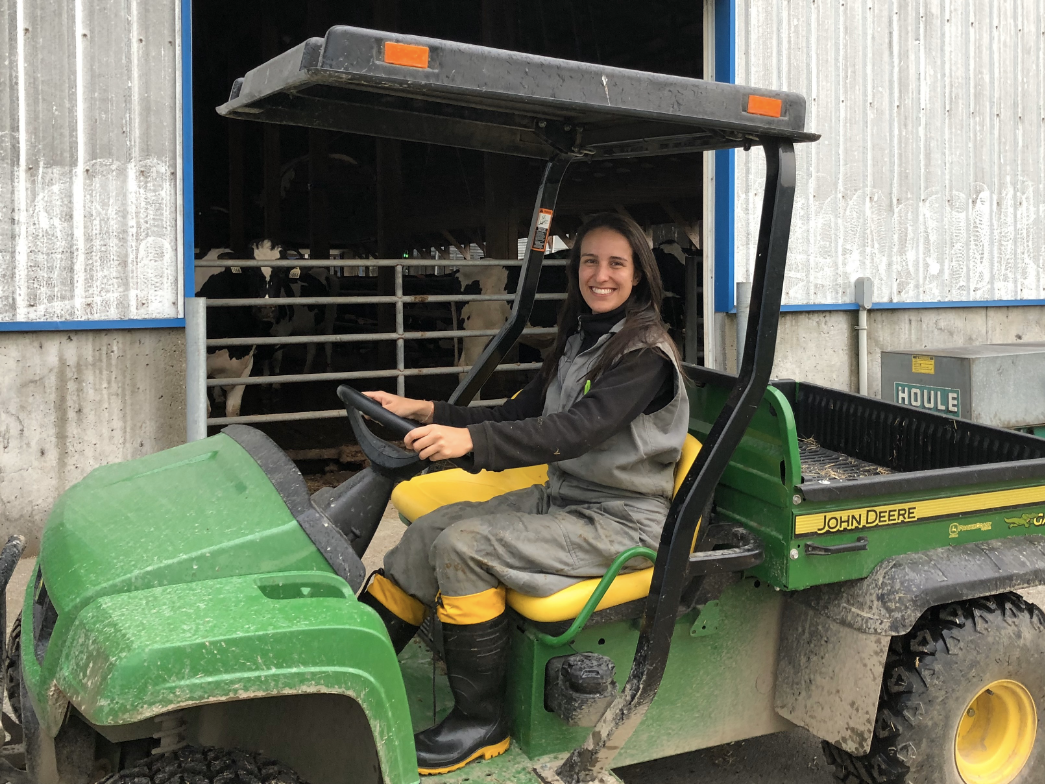Karolini Tenffen de Sousa is a visiting scientist with the Animal Welfare Program this spring and summer. We are thrilled to have her back with us after her initial visit in 2018 under the Emerging Leaders of America Program.

“I have a degree in Animal Science from Brazil. During my undergraduate studies, I worked in the field of animal welfare and behavior, as a researcher in the “Laboratório de Etologia Aplicada e Bem-estar Animal – LETA”, in Brazil, focusing on the evaluation of dairy cattle motivation kept under rotational grazing. Then, I started a master’s at the same university (UFSC), addressing the effects of social behavior on access to a feed resource, and colostrum quality. During my PhD at the “Universidade Federal do Paraná – UFPR“, I focused on the perspective of actors enrolled in the animal production chain and the relationship between tree arrangement and thermal comfort effect on the lying behavior of dairy cows raised on pasture. My main research interest is to understand the behavior of dairy cattle to identify their level of welfare.
My first connection with the AWP was in 2018 when I won the ELAP scholarship. That year, I was a master’s student in Agorecosystem at “Universidade Federal de Santa Catarina” in Florianópolis, Santa Catarina, Brazil. I conducted a research project regarding the social behaviour of transition dairy cows at the Dairy Education and Research Centre. Also, the research group that I am a member of in Brazil, ”Laboratório de Etologia Aplicada e Bem-estar animal” has a long history of collaboration with AWP.
Nowadays, I am a post-doc at the “Instituto de Zootecnia” in Sertãozinho, São Paulo, Brazil. I am conducting a research project regarding environmental enrichment for dairy calves raised in a group.
I decided to come back to AWP due to the research experience of professors Dr. Nina von Keyserlingk and Dr. Dan Weary. Both have a large experience in research methods to evaluate the behaviour and welfare of dairy calves. Being here in person would allow me to share the research that I have been conducting in Brazil and learn new methods that I can apply to future projects. Also, being a part of the AWP would allow me to have the opportunity to meet many other worldwide researchers.”